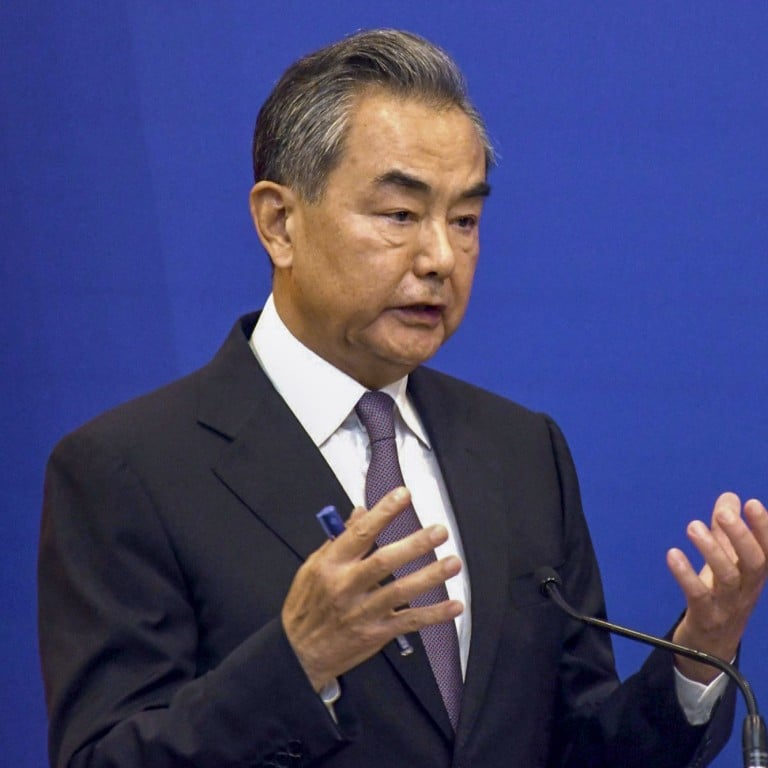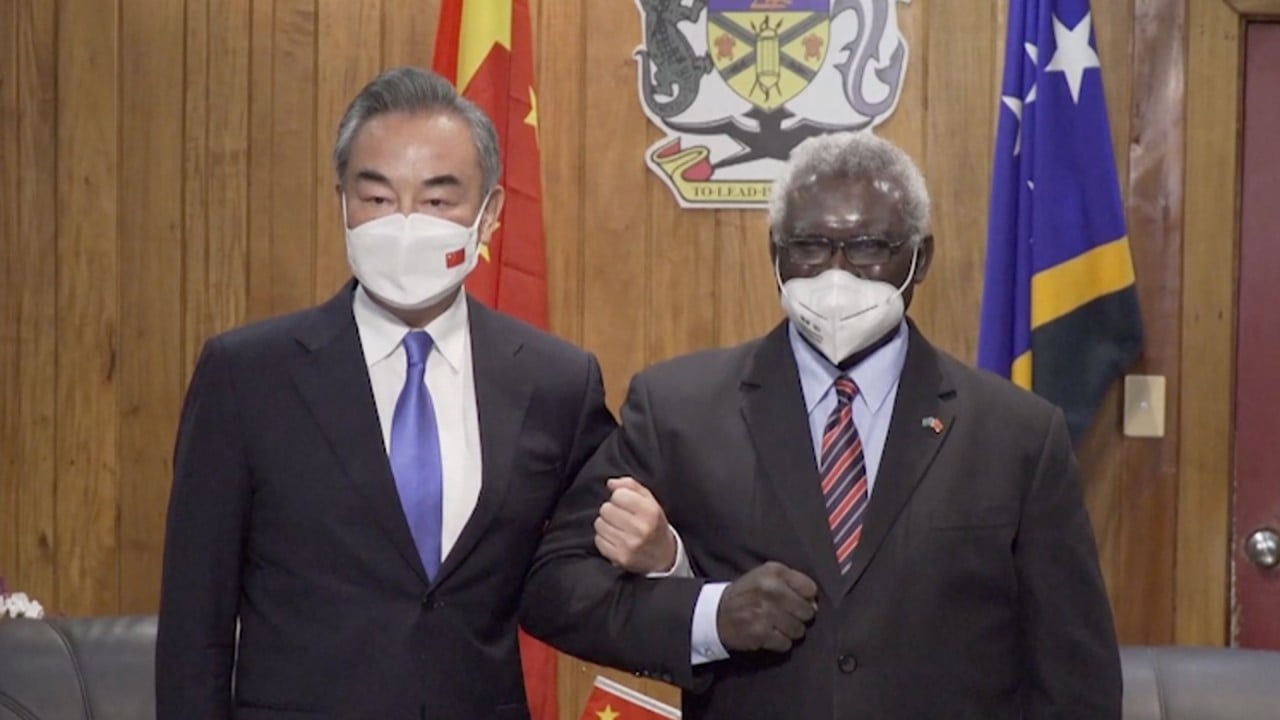
Pacific island states mull China security deal as Beijing tries to deepen ties
- South Pacific nations hold off endorsing Beijing’s plans that would have seen closer cooperation in fighting crime and ‘traditional and non-traditional’ security
- Chinese President Xi Jinping earlier told foreign ministers that Beijing would be a ‘good friend, good brother and good partner’ to the islands
China will always be “a good friend, a good brother and a good partner” to the Pacific islands, President Xi Jinping said as Beijing pushed for further engagement with the strategically important region under the watchful eye of the United States and its allies.
Chinese investments boost Fiji ties
In a written address to the senior officials at the second China-Pacific Islands Foreign Ministers’ Meeting on Monday, Xi said: “China has always insisted on the equality of all countries, large and small, and has developed friendly relations with the Pacific island countries based on the correct concept of justice and benefit and the concept of genuine goodwill.
“No matter how the international situation changes, to the Pacific island nations, China has always been a good friend that shares the same vision, a good brother in the same boat and a good partner who walks side by side.”
This was the first time a Chinese leader had delivered a written address to the meeting, which Xi described as “an important platform … to strengthen dialogue, enhance mutual trust and promote cooperation”.
He said it was the “common aspiration” and “shared responsibility” for people in the Asia-Pacific region to maintain peace and stability, adding that China was willing to work to build a “community with a shared future”.
Monday’s meeting was chaired by Wang, who was midway through a diplomatic tour of the region aimed at expanding Chinese military, economic and diplomatic influence in the South Pacific.
He was joined, via videolink, by his counterparts from 10 island nations that have established diplomatic ties with Beijing. Representatives from Tuvalu, the Marshall Islands, Palau and Nauru, which are among the few remaining allies of Taiwan, were not invited.
It was the second meeting between Wang and the Pacific islands’ foreign ministers after they held a virtual meeting last October.

Before Wang’s tour, Associated Press reported that leaked documents showed that China hoped the island states would endorse a “Common Development Vision” document in which Beijing proposed to strengthen a wide range of cooperation, including “in the fields of traditional and non-traditional security”.
It also said that Beijing expected to “expand law enforcement cooperation, jointly combat transnational crime, and establish a dialogue mechanism on law enforcement capacity and police cooperation”.
Speaking after Monday’s meeting, Wang said the nations had agreed on five areas of cooperation, including economic recovery after the Covid-19 pandemic, and new centres for agriculture and disaster relief, but security was not listed.
“China will release its own position paper on our own positions and propositions and cooperation proposals with Pacific island countries, and going forward we will continue to have ongoing and in-depth discussions and consultations to shape more consensus on cooperation,” he told reporters in Suva, the capital of Fiji. Questions at the media briefing were not allowed.
He also tried to ease concerns over China’s motives in the region.
US views on China ‘gone seriously awry’, foreign minister Wang Yi warns
“Don’t be too anxious and don’t be too nervous, because the common development and prosperity of China and all the other developing countries will only mean great harmony, greater justice and greater progress for the whole world,” he said, adding that China also supported developing countries in Africa, Asia and the Caribbean.
Taking questions after Wang’s briefing, China’s ambassador to Fiji, Qian Bo, said participants had agreed to discuss a draft communique and a five-year plan “until we have reached an agreement”.
He added: “There has been general support from the 10 countries with which we have diplomatic relations, but of course there are some concerns on some specific issues.”
Qian said China’s position paper would be released after Wang finished his visit to the region on Saturday.
“We are always in constant consultations with our friends,” Qian was cited as saying by Australia’s ABC News. “It is also China’s policy – we never impose anything on other countries.”
Fijian Prime Minister Frank Bainimarama said the Pacific nations were prioritising consensus.
“Geopolitical point-scoring means less than little to anyone whose community is slipping beneath the rising seas, whose job is being lost to the pandemic, or whose family is impacted by the rapid rise in the price of commodities,” Bainimarama said.
During her first visit to Fiji on Friday, Australia’s new foreign minister, Penny Wong, said the Australian government “have expressed our concerns publicly about the security agreement”.
US State Department spokesman Ned Price last week warned South Pacific nations to be wary of “shadowy, vague deals with little transparency or regional consultation” with China.
The region has emerged as an increasingly contested area in the competition for influence between China and the US.
In a separate meeting earlier on Monday, Wang told Fijian President Ratu Wiliame Katonivere that China would continue to develop its ties.
Wang Yi tells Pacific nation the US is hindering Chinese development
“The revitalisation of China’s development is a common achievement for developing countries and a strengthening of the forces of peace in the world, which means that China will have more resources to defend the legitimate rights and interests of developing countries in the international arena more forcefully,” the Chinese foreign ministry quoted Wang as saying.
“It is precisely for this reason that some forces do not want to see China develop and grow, and seek to contain, slow down or even interrupt China’s development process.”
In response, Katonivere said his country was proud of its ties with China and would abide by the one-China policy, under which Taiwan is considered to be part of China.
Additional reporting by Reuters and Bloomberg


